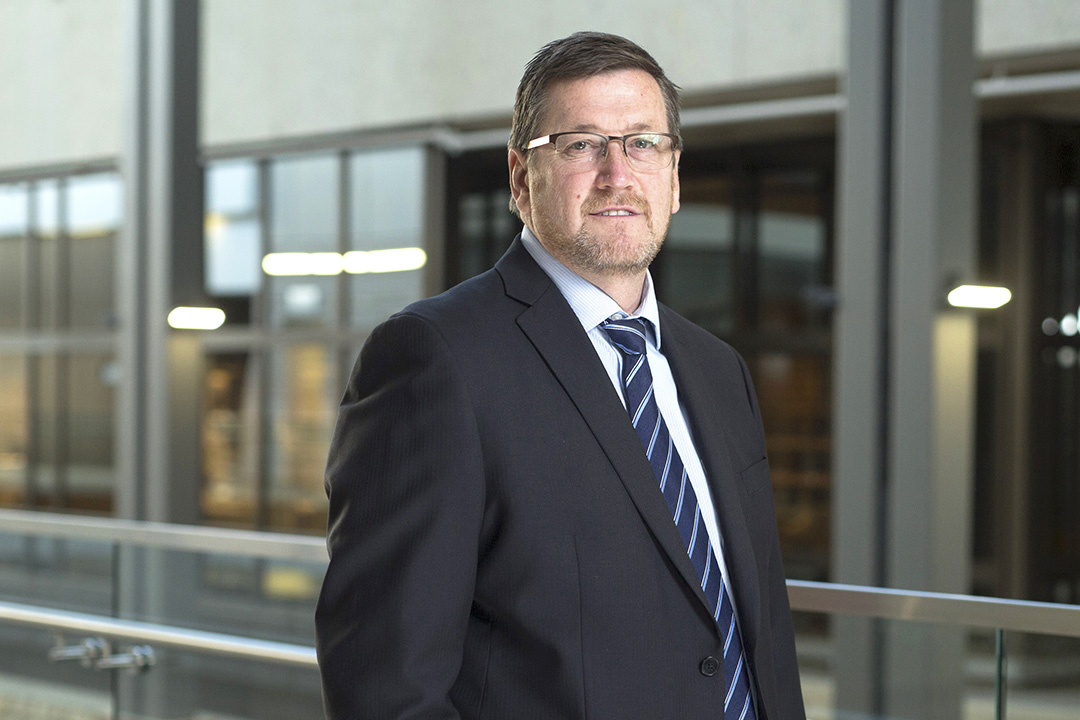
Dentistry develops progressive programs
With two major new programs starting in May and more on the way, it’s an exciting time for the ever-evolving and expanding College of Dentistry.
By James ShewagaThe University of Saskatchewan (USask) dental school will begin offering a new Bachelor of Science in Dentistry as well as the International Dental Degree Program (IDDP) this spring as the college continues to develop to meet the needs of its students, the profession and the province it serves.
“The dental school is really pleased that our two proposed new programs are going ahead,” said Dr. Doug Brothwell (DMD), dean of the College of Dentistry, which began the first accredited dental program in the province 50 years ago back in 1968/69. “Both programs are very important to the future of the dental school and to the dental profession.”
The new bachelor’s and IDDP programs were recently approved by University Council. Brothwell also hopes to make another important announcement soon as the college proposes to offer graduate programs for the first time.
“We don’t offer them yet, but that’s next,” said Brothwell. “We have a notice of intent before the planning and priorities committee right now for our first specialty program, so we anticipate opening our first three graduate programs within two years.”
The addition of graduate programs would be a significant advancement for the college, with the new bachelor’s degree specifically designed to bolster research initiatives that would enhance USask students’ chances of being accepted into highly competitive specialized programs, such as orthodontics.
“Acceptance into any of the 10 specialties offered in Canada is a highly competitive process, with in some cases as few as one in 30 applicants being accepted in some graduate programs, so highly competitive is an understatement,” said Brothwell. “Our graduates are always looking for ways to be better applicants in this competitive process. The Bachelor of Science in Dentistry allows them to show that they have the ability to perform dental research, which is a requirement of all graduate programs.”
Brothwell said the emphasis on enhancing research opportunities for students is a new focus for the college as it strives to bolster its research output.
“With the new Bachelor of Science in Dentistry, instead of every dental student doing a small research project—which seldom led to publication—five dental students will get much more in-depth training and experience in research, hopefully leading to a published paper for every student,” he said. “It’s 20 in-depth weeks of working on a single research project, from inception to publication. Dentistry is a research and evidence-based profession, and now even our undergraduate students will be involved in creating the research that guides the profession.”
Meanwhile, the new IDDP program will offer internationally trained dentists—from schools not accredited in Canada—the ability to practice in the country by receiving some credit for previous education and by completing the final two years of the four-year Doctor of Dental Medicine program. Seven of the 10 dental schools in Canada already offer similar programs, which support federal initiatives to give immigrants more opportunity to make the most of their previous training and experience.
“There are hundreds and hundreds of dentists from other countries who are living in Canada and are unable to write the examinations that are required to become licensed in Canada, so their former training goes unrecognized and un-utilized,” said Brothwell. “That’s the principal reason why we’ve introduced the international dentist program: to provide a pathway that allows these dentists from other countries to obtain Canadian credentials and be eligible for licensure to practice their profession in Canada.”
Brothwell believes foreign-trained dentists could potentially help fill the gap by providing more dentists to practice in rural and northern areas of the province.
“My experience in Saskatchewan, and in other places in Canada, is that the candidates who will come into our international dentist program have values that align more closely with rural and remote practice, so it is our hope in offering this program that some of those grads will choose to locate their practices in those areas,” said Brothwell. “And anything we can do that helps to increase the number of dentists who practice in rural and northern areas is a good thing for our province.”

